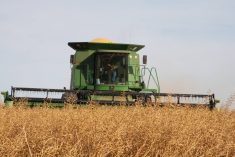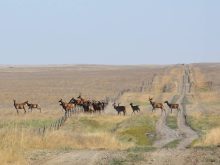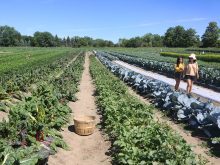Henry Dayday was still standing with a firm jaw the day after receiving what his political opponents think will be a knock-out blow from prime minister Jean ChrŽtien.
But while Dayday stood firm, he had a lot of talking to do to explain why voters in a Saskatchewan federal byelection should vote for the candidate of a party whose leader seems to question whether there is a farm income crisis.
“I call it a crisis. The farm situation is a crisis,” said Dayday, who is mayor of Saskatoon, as well as the Liberal candidate for Saskatoon-Rosetown-Biggar.
Read Also

New program aims to support plant-based exports to Asia
Understanding the preferences of consumers in Taiwan and how they differ from Indonesia or Malaysia isn’t easy for a small company in Saskatchewan.
“It would be better to have someone inside government who can voice these opinions…. Opposition has taken us to where things aren’t good for us,” he said at a news conference after last week’s failed farm aid trip to Ottawa.
Dayday’s opponents were happy to talk about ChrŽtien’s response to the prairie plea.
“He misses the point and shows a complete misunderstanding of the crisis,” said NDP candidate Dennis Gruending. “I think he’s completely out of touch.”
Progressive Conservative candidate Rich Gabruch said the federal response will lead to an even stronger protest vote against the Liberal government.
“It empowers the rural people,” said Gabruch.
Large rural vote
The farm vote is substantial in Saskatoon-Rosetown-Biggar. About two-thirds of the voters live in Saskatoon and one third in rural areas. But all candidates agree that city voters are attuned to the farm income situation because Saskatoon’s economy is heavily reliant on agriculture.
Dayday’s opponents didn’t agree on which of them would benefit most from voter anger projected at the federal government.
Gruending said the NDP was the first party to raise the farm income situation in the House of Commons, so voters should see his party as their most committed champion.
And he said the NDP’s main opponent in the riding – the Reform party – had fought against federal support for farmers until after the 1997 election, so they can’t be trusted to get aid for agriculture.
“They have no credibility at this point in asking for assistance,” said Gruending.
Reform candidate Jim McAllister could not be reached for comment.
Gabruch said both the federal response and the failure of two NDP premiers to get additional aid shows that neither party deserves a vote. Instead, rural voters should return to an old choice.
“They remember the Conservatives are the friends of the farmer,” said Gabruch. “When we had a Conservative government, when we had Bill McKnight in this riding, we delivered.”
Dayday said he could deliver more for farmers than another MP howling in the wilderness of opposition. He said the Liberal government wants more Saskatchewan representation, and is willing to listen to western members.
To prove his point, Dayday called the prime minister on the weekend to underline the severity of the farm income situation. ChrŽtien offered no guarantees of new funding.
However, he did not close the door to additional aid money, Dayday said. But first the provincial government would have to put up money itself.

















